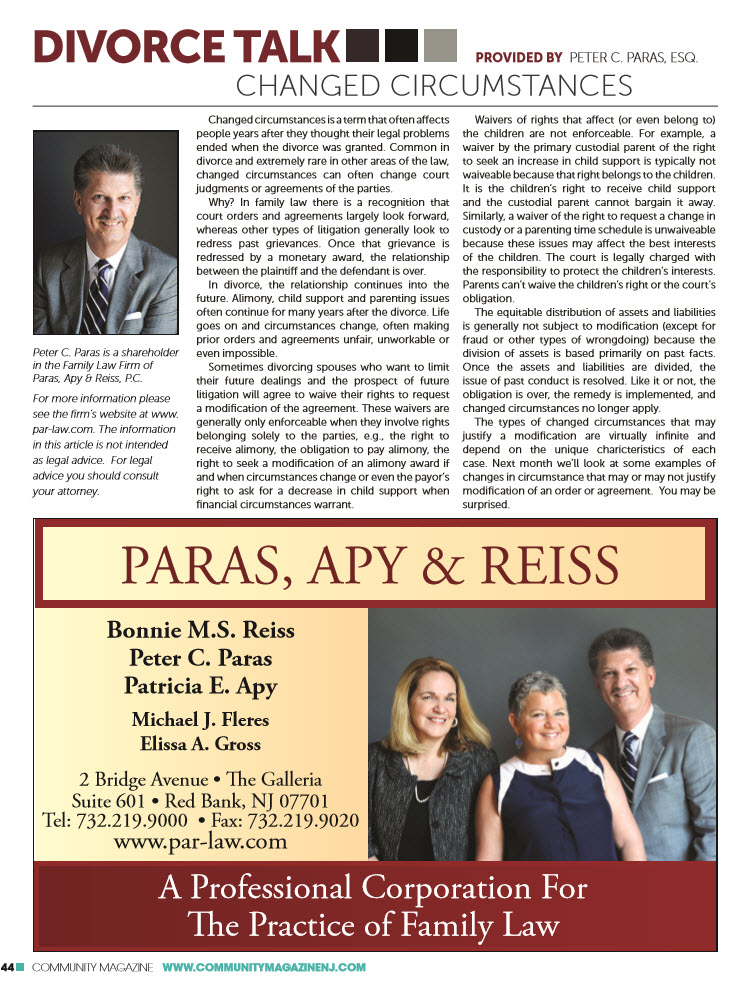Changed circumstances is a term that often affects people years after they thought their legal problems ended when the divorce was granted. Common in divorce and extremely rare in other areas of the law, changed circumstances can often change court judgments or agreements of the parties.
Why? In family law there is a recognition that court orders and agreements largely look forward, whereas other types of litigation generally look to redress past grievances. Once that grievance is redressed by a monetary award, the relationship between the plaintiff and the defendant is over.
In divorce, the relationship continues into the future. Alimony, child support and parenting issues often continue for many years after the divorce. Life goes on and circumstances change, often making prior orders and agreements unfair, unworkable or even impossible.
Sometimes divorcing spouses who want to limit their future dealings and the prospect of future litigation will agree to waive their rights to request a modification of the agreement. These waivers are generally only enforceable when they involve rights belonging solely to the parties, e.g., the right to receive alimony, the obligation to pay alimony, the right to seek a modification of an alimony award if and when circumstances change or even the payor’s right to ask for a decrease in child support when financial circumstances warrant.
Waivers of rights that affect (or even belong to) the children are not enforceable. For example, a waiver by the primary custodial parent of the right to seek an increase in child support is typically not waiveable because that right belongs to the children. It is the children’s right to receive child support and the custodial parent cannot bargain it away. Similarly, a waiver of the right to request a change in custody or a parenting time schedule is unwaiveable because these issues may affect the best interests of the children. The court is legally charged with the responsibility to protect the children’s interests. Parents can’t waive the children’s right or the court’s obligation.
The equitable distribution of assets and liabilities is generally not subject to modification (except for fraud or other types of wrongdoing) because the division of assets is based primarily on past facts. Once the assets and liabilities are divided, the issue of past conduct is resolved. Like it or not, the obligation is over, the remedy is implemented, and changed circumstances no longer apply.
The types of changed circumstances that may justify a modification are virtually infinite and depend on the unique charicteristics of each case. Next month we’ll look at some examples of changes in circumstance that may or may not justify modification of an order or agreement. You may be surprised.

